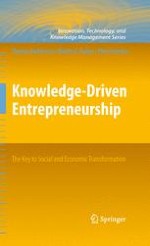2010 | OriginalPaper | Buchkapitel
14. Laboratory Experiments as a Tool in Empirical Economic Analysis of High-Expectation Entrepreneurship
verfasst von : Thomas Andersson, Martin G. Curley, Piero Formica
Erschienen in: Knowledge-Driven Entrepreneurship
Verlag: Springer New York
Aktivieren Sie unsere intelligente Suche, um passende Fachinhalte oder Patente zu finden.
Wählen Sie Textabschnitte aus um mit Künstlicher Intelligenz passenden Patente zu finden. powered by
Markieren Sie Textabschnitte, um KI-gestützt weitere passende Inhalte zu finden. powered by
